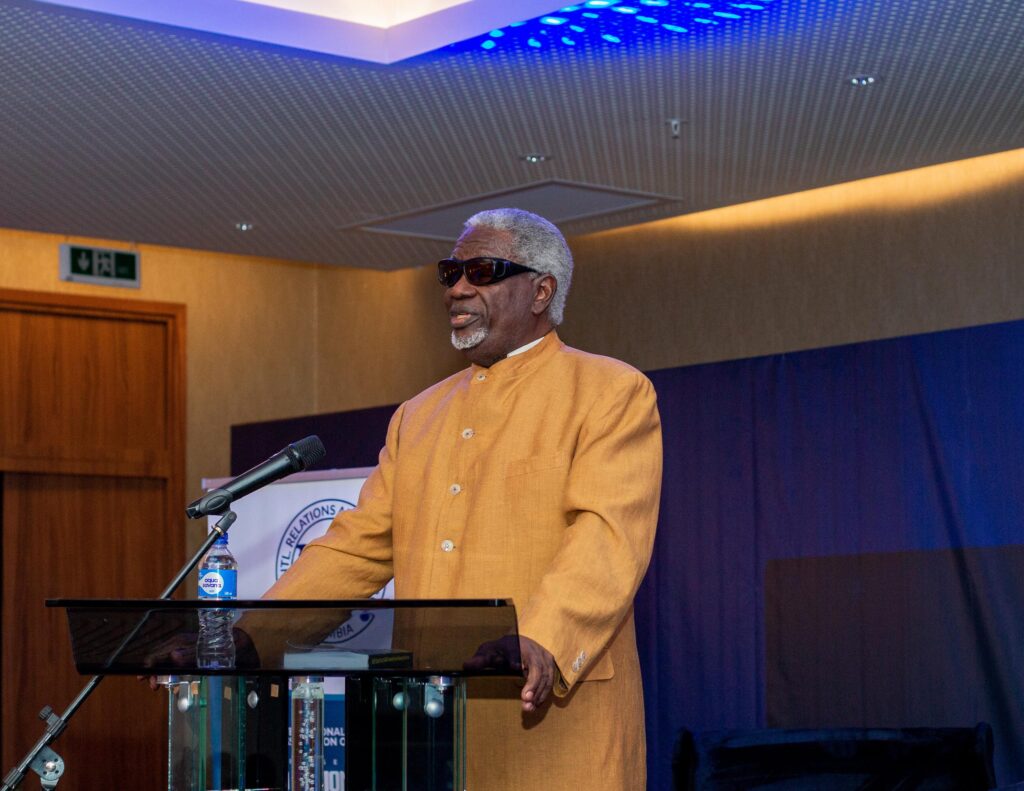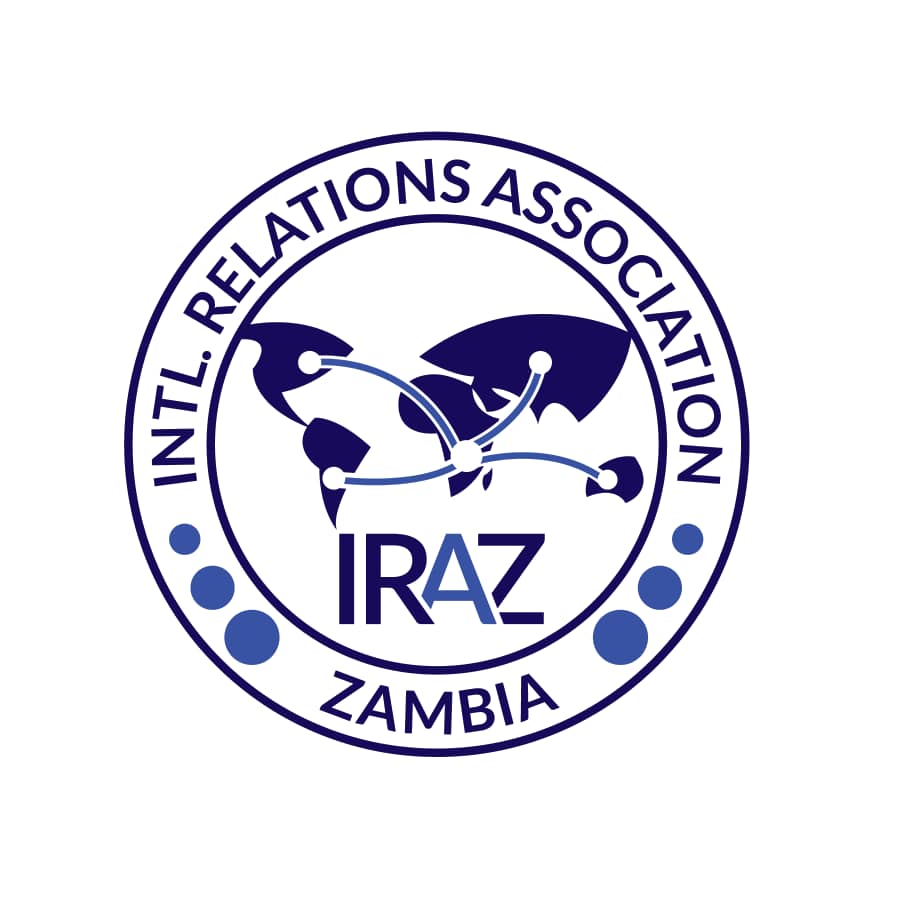WHAT SHOULD BE THE WAY FORWARD FOR ZAMBIA’S ECONOMIC AND GLOBAL STRATEGY FOR THE CURRENT GEOPOLITICAL CHANGES?
BY DR. FREDRICK MUTESA
PAPER PRESENTED AT THE 2ND EDITION OF THE INTERNATIONAL RELATIONS ASSOCIATION OF ZAMBIA (IRAZ) DIPLOMAT’S ROUNDTABLE MEETING HELD AT INTERCONTINENTAL HOTEL, LUSAKA, 30TH APRIL, 2025

I would like to begin by expressing my utmost gratitude to IRAZ for inviting me to speak on this auspicious occasion graced by eminent persons in the field of international relations. In particular, I wish to take note of the keynote address by Dr. Kasuka Mutukwa, a man who has had a sterling career in academia, international diplomacy and domestic and regional politics. I would also like to pay special tribute to Mr. Boyd Muleya, Assistant Director, Development Cooperation in the Ministry of Foreign Affairs and International Cooperation of the Government of the Republic of Zambia, who spoke as Guest of Honour on behalf of the Permanent Secretary. My gratitude also goes to His Excellency Mr. Han Jing, Ambassador of The People’s Republic of China to Zambia, who delivered a second keynote address.
I also take cognizance of the other speakers, namely Mr. Walter Muleya, and the invited panel discussants. My address this afternoon takes note and builds on the excellent presentations made by the previous speakers.
By way of self-introduction, I wish to mention that I am here in my capacity as Secretary-General of Zambia-China Friendship Association (ZCFA), a brainchild of Zambia’s 4th President, His Excellency Mr. Rupiah Bwezani Banda, who until his death on 11th March 2022 served as founding Executive President of the Association. ZCFA was also privileged to have had Zambia’s founding President Dr. Kenneth Kaunda as its first patron. The mandate of ZCFA is to compliment the government-to-government bilateral ties between Zambia and China by promoting people-to-people and cultural exchanges.
Turning to my subject of the day, I have been tasked to speak on the topic, What Should Be the Way Forward for Zambia’s Economic and Global Strategy for the Current Geopolitical Changes? I would like to acknowledge that being the last speaker, my presentation has benefited greatly from those who have preceded me.
My response to the topic before me is organized around five key issues, namely (1) core interests, (2) multilateralism, (3) positive neutrality, (4) moral leadership, and (5) leveraging Zambia’s strengths.
- CORE INTERESTS
By core interests, I am referring to a government’s governance and development aspirations which guide its conduct of international relations and diplomacy. Core interests therefore speak to the sovereignty of a nation based on the principle of self-determination.
In the case of Zambia, the constant core interests of the nation in the face of the ever-changing geopolitical environment are encapsulated in the government’s two main pillars of foreign policy viz, peace and security on the one hand, and economic diplomacy on the other. These are pillars which provide a framework for government’s aspirations to promote good neighbourliness and improve the living standards of its citizens. Domestically, Zambia’s governance and development aspirations are codified in the various national development plans and strategies, such as the vision 2030 and the 8th National Development Plan.
Externally, Zambia’s core interests are regulated by its membership of regional, continental and international bodies such as SADC, COMESA, AU and the United Nations. Membership to these organizations is underpinned by signing and ratification of various conventions and agreements. Going forward, Zambia must always keep in focus its core interests as it navigates its way through the maze of the ever-changing global geopolitical changes. In other words, Zambia’s participation in international affairs must promote the twin goals of peace and development, both at home and abroad.
- MULTILATERALISM
In the shifting global geopolitical changes characterized by unprecedented unilateralism and protectionism, Zambia must stand on the side of multilateralism. This is premised on the understanding that cooperation and dialogue are key pillars to win-win development outcomes and global peace and security. To this end, Zambia must ensure that it has a strong voice in regional, continental and global bodies, and this must be a voice that advocates for stronger cooperation and dialogue.
Key to promotion of multilateralism is enhancing Zambia’s ties with other like-minded nations and participation in regional, continental and global platforms. These ties and participation must protect and advance Zambia’s core interests. Currently, Zambia must participate actively in fora such as AU, FOCAC, TICAD, ACP-EU Development Cooperation, WTO and others, to counteract the world’s slide into unhealthy protectionism symbolized by the raising of trade tariff walls. Similarly, Zambia must contribute actively to seeking negotiated settlements in global hotspots such as DRC, Sudan, Gaza, and Ukraine.
- POSITIVE NEUTRALITY
As far back as the era of the cold war rivalry induced by the super powers, Zambia has renowned for its policy of positive neutrality. The landmark evidence of this policy was Zambia’s hosting of the summit of the Non-Aligned Movement in Lusaka in 1970, which established Zambia as a leader in the pursuit of positive neutrality.
Positive neutrality, however, should neither mean failing to point out sources of disruptions to the well-functioning system of global governance nor taking note of dependable allies who have stood with the country regardless of the changing global geopolitical and economic context. Zambia’s founding president, Dr. Kenneth Kaunda, for instance, was unequivocal in his condemnation of the Western world’s collusion in the perpetration of apartheid in South Africa and other oppressive political systems elsewhere.
Similarly, Zambia can’t afford not to take note of dependable all-weather friends in the international community that have consistently supported its right to national self-determination and aspiration for economic development. One such friend is the People’s Republic of China, which has had an unrivaled record of consistent support to Zambia.
Positive neutrality should also be premised on a proactive policy that responds swiftly and appropriately to emerging trends such as crises and opportunities. As the saying goes, Zambia should not come late to the party. It must strive to shape history by safeguarding its core interests.
- MORAL LEADERSHIP
In a world tottering on the verge of returning to mighty is always right, Zambia must continue to provide moral leadership which has come to be the hallmark of the country’s participation in global affairs. From the beginning of its nationhood, Zambia understood that its political independence would remain incomplete as long as other peoples were oppressed elsewhere. This is what made Zambia a frontline state in Southern Africa at a time when many surrounding nations were under the sway of white minority racist regimes.
Zambia risked its own political stability and sacrificed its right to development by supporting and hosting liberation movements fighting for freedom in the neighbouring countries. Historically, Zambia has also played the role of a safe haven for peoples fleeing armed conflicts in their own countries. Zambia has also hosted many meetings in search of negotiated settlements to armed conflicts. Beyond peace agreements, Zambia has also promoted regional, continental and global cooperation. Zambia must continue to provide moral leadership to the world, starting with its own regional environ.
- LEVERAGING ZAMBIA’S STRENGTHS
In the murky world of international politics, nations negotiate from positions of strength. Zambia must come to the negotiating table with the mentality of an equal partner, with something valuable to offer the international community and partners. Zambia is not coming to the table with a begging bowl. Zambia has something to offer the world which should attract respect and fair terms. In the ongoing global technological revolution, Zambia offers critical minerals and other important natural resources. Zambia is looking for affordable finance and technology. It should negotiate with others as an equal partner. Zambia should use its abundant natural resources as leverage to get deals which advance its core interests. It should retain the right to determine under what conditions and terms its vast natural resources can be exploited.
Leveraging Zambia’s strengths also includes investing in human capital as well as optimally utilizing all available human resources, both at home and in the diaspora. In the field of international relations, for example, it is gratifying to note that the Ministry of Foreign Affairs and International Cooperation is opening up to promotion of career diplomats and is also receptive to progressive ideas emanating from fora such as this one.
In conclusion, what I have highlighted above are broad contours that I believe should be essential features of a framework for Zambia’s Economic and Global Strategy for the Current Geopolitical Changes. I hasten to add that this is not cast in concrete, but should form part of the parameters for a dynamic strategy that responds effectively and timely to the changing global governance and development architecture.
